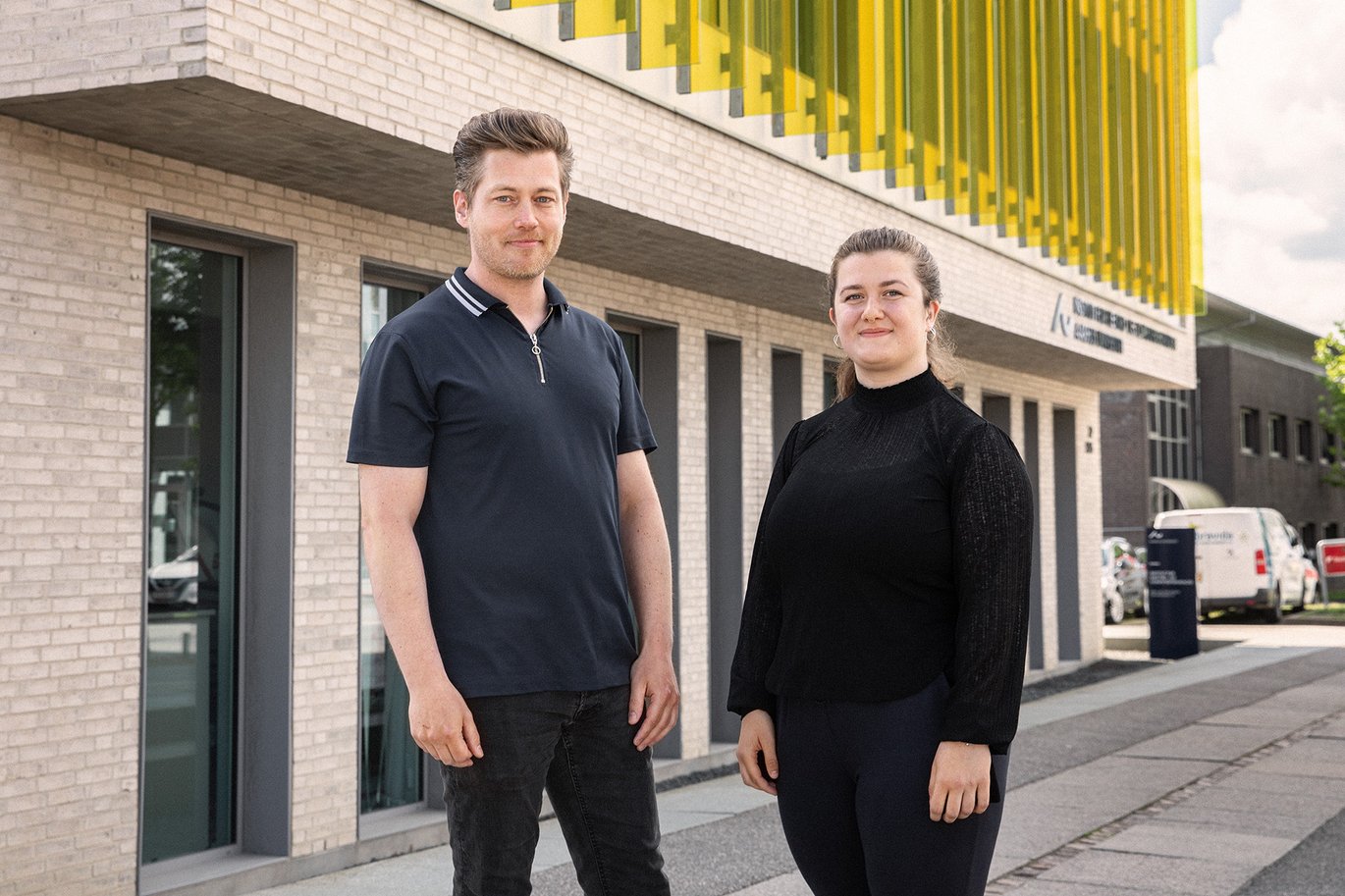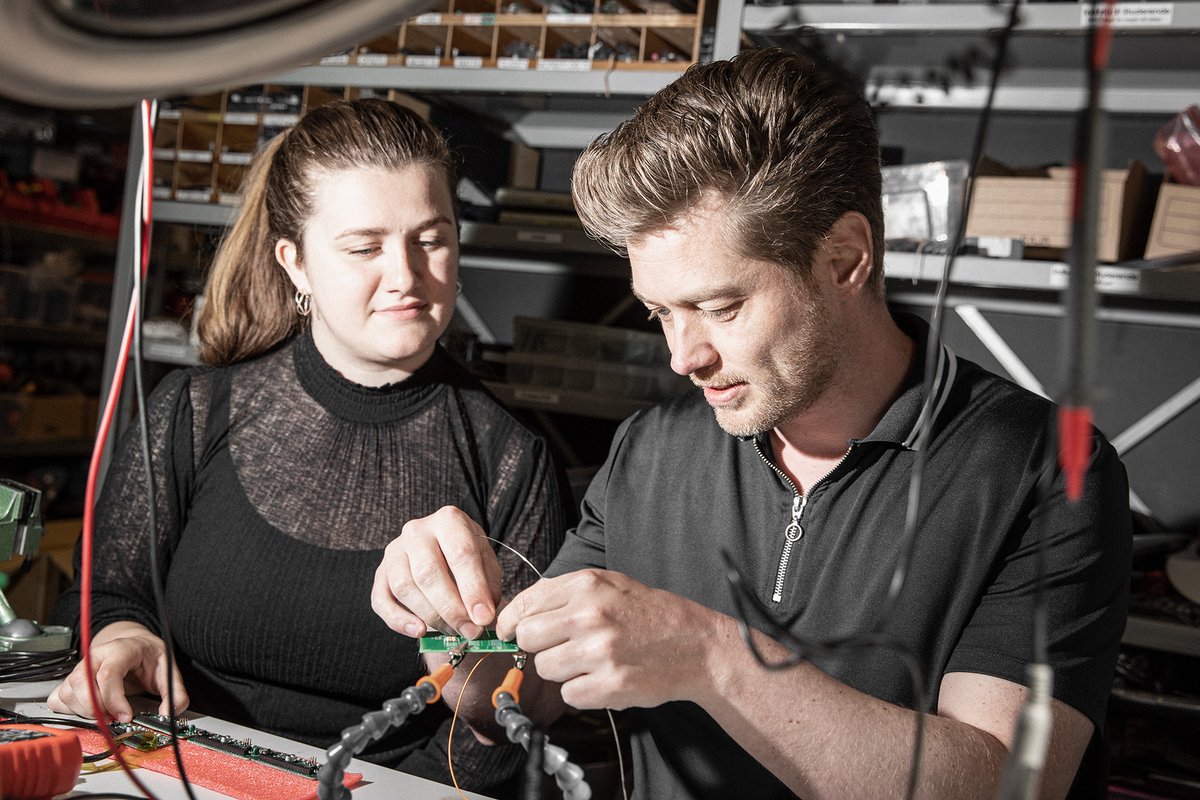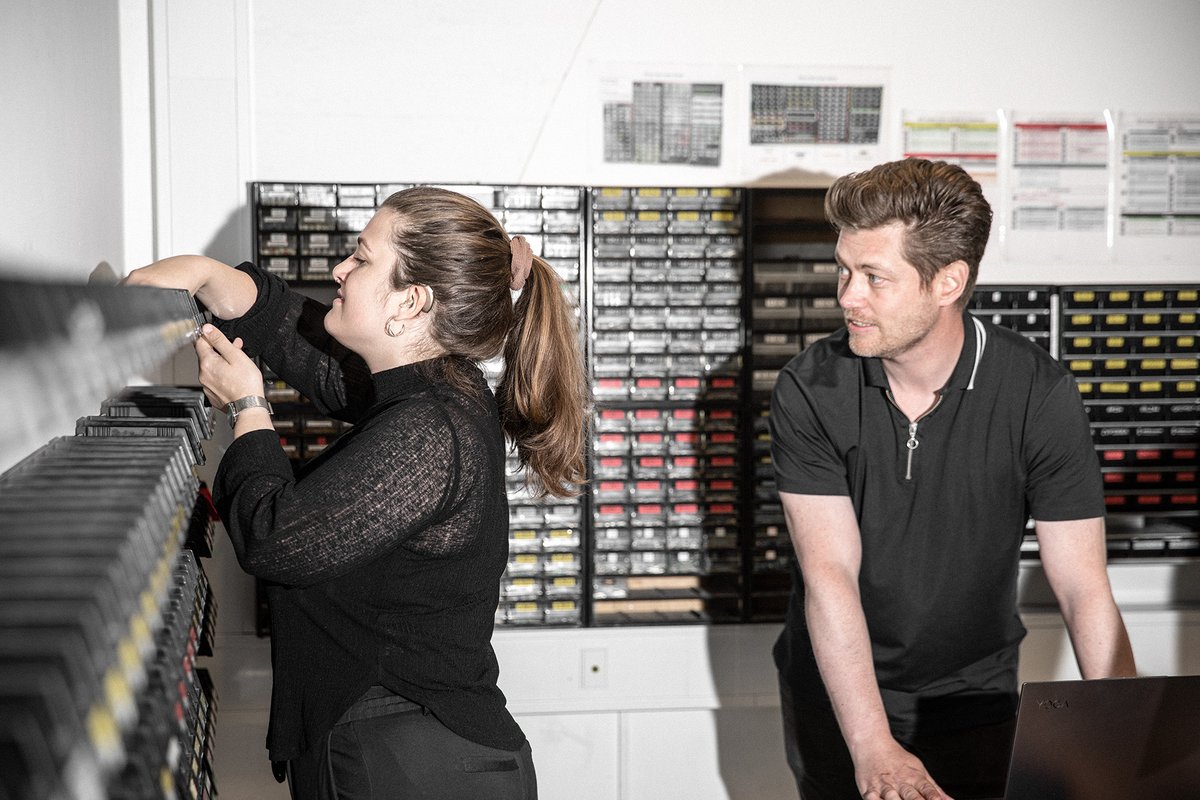Engineering students from Aarhus University aim to improve blood pressure measurements
Up to one in every four Danes face the prospect of having high blood pressure. Annually, more than 450,000 home blood pressure measurements are performed in the Danish health system. Now, two students from Aarhus University want to automate data collection and make it easier for patients to measure their blood pressure with their startup Akusis.

Leah Minhee Krogh and Danny Bøjstrup Pedersen, who are both 6th-semester healthcare technology students at Aarhus University, have founded the company Akusis together with general practitioner (GP) Kurt Rasmussen. They have ambitions to improve the equipment that patients use in connection with blood pressure measurements in the home as well as to automate data collection. Their solution will increase patient comfort, make data more valid and improve the GP’s ability to plan the correct treatment.
If a GP suspects high (or low) blood pressure in a patient, the patient can borrow a home measurement kit. The patient must measure his or her blood pressure three times in a row twice daily for three days and enter the results in a form – either digitally or on paper. The measurement can be resource-demanding for the patient, and errors often occur in connection with entering or processing data. This means that the data may be insufficient for the GP to make diagnosis and order treatment, says Danny Bøjstrup Pedersen:
“There is always a risk of errors when we are dealing with manual entry, and therefore we see an interesting market for automation of blood pressure measurements performed by patients in their own homes. Our goal is to increase patient comfort and make data collection more efficient and thus valid in order for the GP to be able to plan the optimal treatment for the patient.”
Data contributes to the prevention of illnesses
Blood pressure can tell a lot about a person's general state of health, and therefore more valid data can play an important role in preventing diseases.
"Blood pressure is an important health indicator, and by improving the processes around the measurements, we want to create better conditions for preventing the development of illnesses," says Leah Minhee Krogh.
The founders are going to secure the data quality from patients' blood pressure measurements by making a direct integration and automatic transfer to the IT systems used in the healthcare sector. They have already developed the blueprint for a brand new measuring device with built-in technology for handling data.
“Our device has been developed with focus on both patients and staff in the clinics and provides both high comfort and user-friendly design for both parties. In addition, it has direct integration with the systems used in the healthcare domain,” Danny Bøjstrup Pedersen explains.
The device has built-in sensors, which translate pressure fluctuations to the values used in blood pressure measurements. The measurements are registered and stored automatically and then transmitted wirelessly to the relevant IT systems. The device increases comfort significantly for the patient when measuring blood pressure, and the automated data transfer minimizes the risk of errors.
In the long run, the founders hope that their product can contribute to fewer hospitalizations and deaths in the risk group and a general improvement in the health of the population.
Ready for the market in 2023
As a healthcare technology engineer, you acquire competencies in both electronics and software as well as a healthcare domain-specific knowledge and understanding. You work on technical solutions to create improvements for both employees and patients in the healthcare system.
Therefore, the two founders themselves are able to handle many aspects of running their health tech startup. Even so, they have chosen a business model where they collaborate with several technology subcontractors in the healthcare sector. This will ensure a rapid commercialization process and they expect to be able to introduce their new product to the market within the next two years. They hope to be ready with the first prototype in the autumn of 2022.
In parallel with running their business, Danny and Leah will also spend the next semester writing their bachelor's project before they can call themselves healthcare technology engineers and are able to dedicate full focus to Akusis.
Akusis participates in Folkemødet (the Democracy Festival of Denmark), June 16th, where they will present their business concept to a panel in the Tech tent.
Follow Akusis at: https://www.linkedin.com/company/akusis/ and www.akusis.dk.
If you would like to support them on their journey, right now you can donate an optional amount to their crowdfunding campaign on IDA's platform: https://crowdfunding.ida.dk/project/93
Contact
Litte Dalsgaard, ORBIT Lab Community Manager, Department of Electrical and Computer Engineering, litte@ece.au.dk


